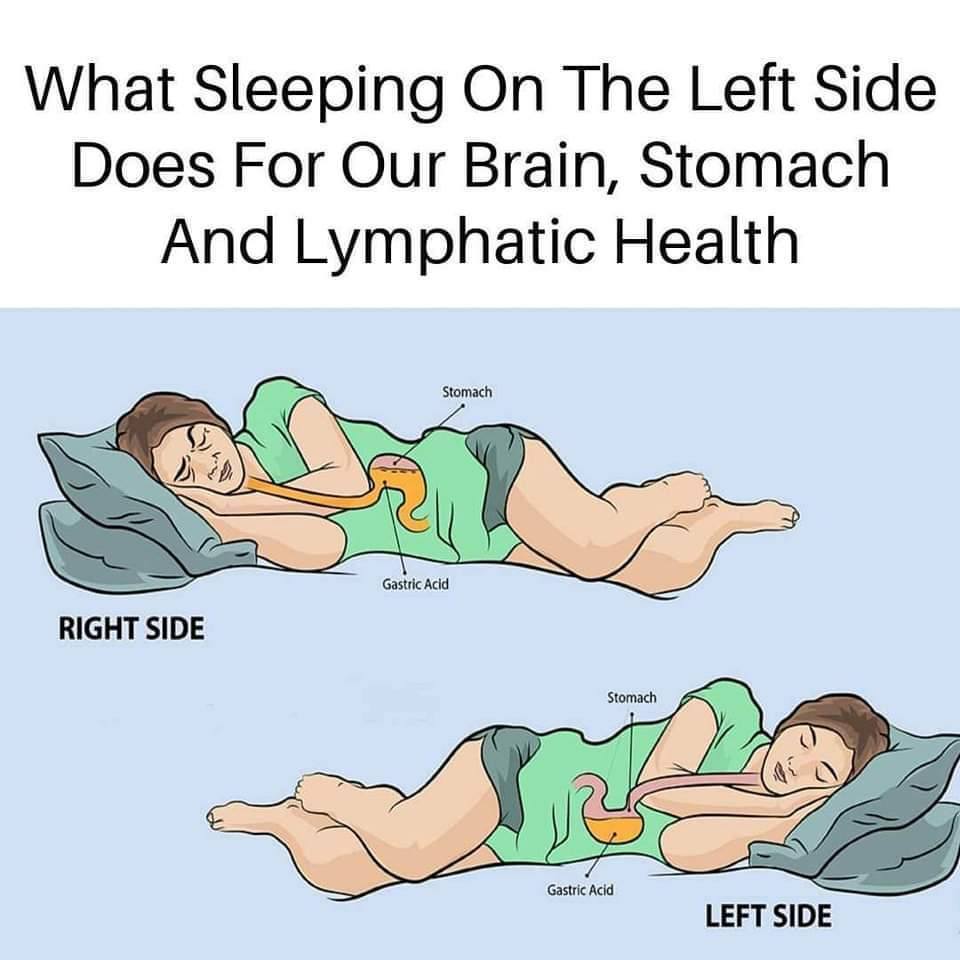OK, so you’re probably thinking, If I’m asleep, how can I force myself to stay put in a specific position? Beyond the use of a body pillow to stabilize your position, take stock of your mattress, because a bad mattress can make it more likely that you’ll toss and turn. A 2011 study from the journal Ergonomics found that participants who slept on sagging, too-soft mattresses experienced poor sleep quality. Dr. Hayden recommends a mattress that is firm enough to support the weight of your body, providing only a subtle amount of give.
There is, however, a “wrong” way to sleep on your side. If you have a habit of sleeping curled up in the fetal position, Dr. Dautovich says it can hinder breathing by restricting movement of your diaphragm. It can also place unnecessary stress on your joints and leave you feeling sore the next day. “You can reduce the strain on joints by straightening your body as much as possible,” says Dr. Dautovich. In addition, avoid putting your weight on your arms while you sleep, since this can lead to circulatory issues like a feeling of numbness or pins and needles. If possible, try sleeping with your arms folded into your chest.
If you’re not a current side-sleeper, you may be at risk for developing soreness the next day. But beyond immediate physical consequences, improper sleep posture can impact your emotional, psychological, and cardiovascular health in the long run. “Certain hormones are designed to ebb and flow during the sleep cycle,” explains Dr. Hayden. “Growth hormones regulate the production of hormones that we use to repair tissues and heal, [which are] secreted during stage IV of the sleep cycle.”
Ultimately, if you don’t achieve stage IV of your sleep cycle (or rapid eye movement, which occurs 90 minutes after you fall asleep) or it gets interrupted, “you may find yourself gaining weight, getting sick and staying sick more often, and eventually having changes in your cardiovascular system such as hypertension,” he says.
What’s more is that if you’re tossing and turning all night, you’re likely to wake up feeling like you only slept four hours, even if you were under the covers for eight. “Fatigue itself will make you not feel your best,” Dr. Hayden says. “The physical aspects of your health will spill into the emotional and mental aspects. When you feel your best physically, you’re more likely to have a positive self-image.”
Even if you position yourself correctly, you might still move around in your sleep, ultimately shifting your body out of your desired side-sleeping position. It’s important to look at your stress levels and find a way to manage them before bed, says Dr. Hayden, since they might be causing you to be restless at night, and ultimately shift your body out of your desired side-sleeping position.
“If you’re one of these [people who tosses and turns], do something before you go to bed to offload your stress,” he says. Eliminating your stress entirely is easier said than done, but there are small steps you can take to ease yourself into a more restful state. Instead of scrolling through a screen emanating blue light that might compromise your circadian rhythms and ultimately suppress sleep-inducing melatonin, Dr. Hayden recommends reading a book. “Let your mind go blank, or to a time or place that is relaxing and comfortable. Try a warm bath or shower to relax,” he says.
Look: You’re not doomed for a life of pinched nerves and sore muscles if you’re unable to sleep on your side, and only on your side. At the end of the day, all our experts agree that comfort is most important. Other postures like sleeping on your back can also be beneficial if executed properly. If you’re going to sleep on your back, Petrocco-Napuli recommends placing a pillow under your head and under both of your knees in order to support and level the spine. Feel free to experiment with exact pillow placement so as to support the natural curvature of your unique spine.
This might all seem like a lot to think about and remember before you’re supposed to relax and ultimately fall asleep, but rest assured: with a proper pillow, a firm mattress, and an aligned spine, you’ll be well on your way to sleeping soundly — and waking up relatively pain-free. If pain does persist, speak to your doctor about any underlying issues.

